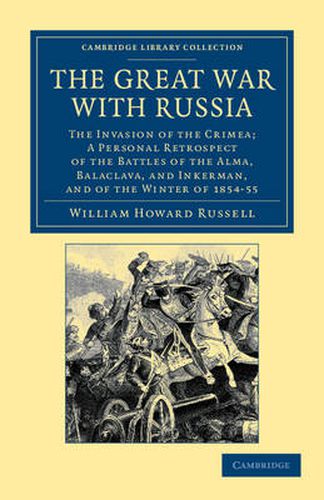Readings Newsletter
Become a Readings Member to make your shopping experience even easier.
Sign in or sign up for free!
You’re not far away from qualifying for FREE standard shipping within Australia
You’ve qualified for FREE standard shipping within Australia
The cart is loading…






The journalist William Howard Russell (1820-1907) is sometimes regarded as being the first war correspondent, and his reports from the conflict in the Crimea are also credited with being a cause of reforms in the British military system. This account of his time there, first published in 1858 and expanded in this 1895 edition, explains how Russell was sent by The Times of London in 1854 to join British troops stationed in Malta. He spent the next two years witnessing some of the key moments of the war, including the battle of Balaclava and the ill-fated Charge of the Light Brigade. His newspaper reports of the fighting and of the living conditions for the troops were widely read and very influential. In this retrospective work, Russell gives a more personal narrative of his experiences, making this an important account of one the most brutal wars of the nineteenth century.
$9.00 standard shipping within Australia
FREE standard shipping within Australia for orders over $100.00
Express & International shipping calculated at checkout
The journalist William Howard Russell (1820-1907) is sometimes regarded as being the first war correspondent, and his reports from the conflict in the Crimea are also credited with being a cause of reforms in the British military system. This account of his time there, first published in 1858 and expanded in this 1895 edition, explains how Russell was sent by The Times of London in 1854 to join British troops stationed in Malta. He spent the next two years witnessing some of the key moments of the war, including the battle of Balaclava and the ill-fated Charge of the Light Brigade. His newspaper reports of the fighting and of the living conditions for the troops were widely read and very influential. In this retrospective work, Russell gives a more personal narrative of his experiences, making this an important account of one the most brutal wars of the nineteenth century.